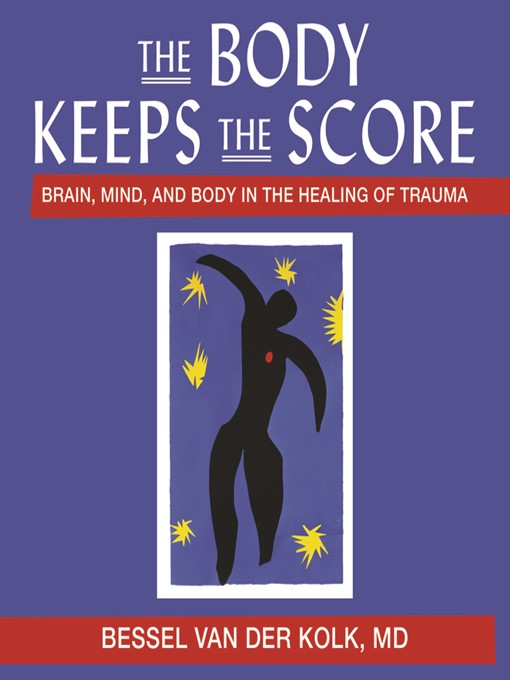


The body keeps the score how to#
Learning how to breathe calmly and remaining in a state of relative physical relaxation, even while accessing painful memories is an essential tool for recovery.Īikido, Judo, Tae Kwon Do, Kendo, and Jiujitsu are examples of techniques that involve movement, breathing, and meditation, the three things the author states are your way out of being stuck in trauma. Methods to Help You Move, Breathe, and Relax

He says we can directly train our arousal system by the way we breathe, chant and move.ġ0 weeks of yoga practice markedly reduced PTSD symptoms of patients who had failed to respond to any medication or other treatments. The fundamental issue in resolving traumatic stress is to restore the proper balance between the rational and emotional brains so that you can feel in charge of how you respond and how you conduct your life. Kendy Anderson reviews the book “The Body Keeps the Score: Brain, Mind and Body in the Healing of Trauma.” Restoring Proper Balance in the Brain Speaking of adrenalin, the author talks about how “The stress hormones of traumatized people take much longer to return to baseline and spike quickly and disproportionately in response to mildly stressful stimuli.” These hormones also contribute to many long-term health issues, depending on which body system is most vulnerable, and contribute to memory and attention problems, irritability, and sleep disorders. van der Kolk shows just how trauma changes the brain and nervous system and can keep both children and adults in a never-ending cycle of fight or flight. This is not light reading for anyone wanting to work through trauma, but it does offer hope.
The body keeps the score plus#
Drawing on 30 plus years of working with trauma survivors, he offers insight into how the body changes in response to trauma and a roadmap of paths to navigate how to move beyond it. Trauma is a fact of life, says Bessel van der Kolk, M.D.

He says, this can leave survivors of trauma feeling out of control and they can begin to fear that they are damaged to the core and beyond redemption. van der Kolk, this can trigger unpleasant emotions, intense physical sensations, and impulsive and aggressive actions. Long after a traumatic experience is over, it may be reactivated at the slightest hint of danger and mobilize disturbed brain circuits and secrete massive amounts of stress hormones.” According to Dr. Lessons from Vietnam veterans - Revolutions in understanding mind and brain - Looking into the brain : the neuroscience revolution - Running for your life : the anatomy of survival - Body-brain connections - Losing your body, losing your self - Getting on the same wavelength : attachment and attunement - Trapped in relationships : the cost of abuse and neglect - What's love got to do with it? - Developmental trauma : the hidden epidemic - Uncovering secrets : the problem of traumatic memory - The unbearable heaviness of remembering - Healing from trauma : owning your self - Language : miracle and tyranny - Letting go of the past: EMDR - Learning to inhabit your body : yoga - Putting the pieces together : self-leadership - Filling in the holes : creating structures - Rewiring the brain : neurofeedback - Finding your voice : communal rhythms and theater - Epilogue : trauma and society.This month, our book review covers: The Body Keeps the Score: Brain, Mind, and Body in the Healing of Trauma by Bessel van der Kolk, M.D.įrom the book’s prologue, the author writes: “While we all want to move beyond trauma, the part of our brain that is devoted to ensuring our survival (deep below our rational brain) is not very good at denial.
The body keeps the score full#
Full Bibliographic Record Publication information:


 0 kommentar(er)
0 kommentar(er)
